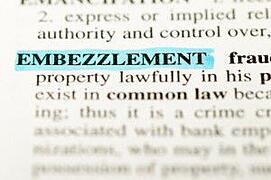Your business’s profitability is largely dependent on having a competent, experienced bookkeeper whose accounting processes are rock solid and consistent – not to mention trustworthy. They do, after all, ensure that the business’ financial transactions are recorded properly and in a timely fashion.
Without detailed financial transparency, you risk playing a never-ending game of catch-up with balances, reports, and financial information that help you make valuable business decisions.
Now, how to address these gaps and issues in the processes and productivity of your bookkeeper? That’s the million dollar question.
Let’s go into some red flags below, as well as how you can mitigate these risks affecting your profitability and growth:
Bookkeeper Pitfalls 101
Unless you’ve done the books yourself, you may not know what to look for as the CEO when examining tasks and processes.
There’s so much to keep track of – from payroll, customer billing, and other business purchases and records – that it’s difficult to know where to start.
Consider the following questions when evaluating your bookkeeper’s performance:
- How proficient are they with QuickBooks and how it’s setup?
- Are they current on best practices for efficiency and expertise? This includes whether other applications should be used, and how to use them to automate manual processes
- Can they provide ongoing and reliable month-end close statements and reports?
- Are they able to provide quick answers to business questions so you can make data-driven decisions?
- Have their numbers been reliable in the past? Do you trust them? If not, why?
- Are they staying compliant with the latest regulations? (This depends on your state and industry, of course)
- How many mistakes have they made? Were any suspicious?
While having a trusted bookkeeper can be ideal, having a dependency on one for an extended period opens the door for potential errors, mistakes, and the possibility of fraud.
The True Cost of Bookkeeping Inefficiency
Once you’ve answered as many of these questions as you can, it’s time to take inventory on those which lack strong processes and best practices, and the effect/cost it has on your business.
Incompetency or Lack of Expertise
This can quickly spell trouble, but it isn’t immediately noticeable if you’re not aware. As a CEO, you wear multiple hats and may not even realize there’s an issue. Unless they’re vetted, trained and properly supervised on an ongoing basis, you have no way of knowing whether they are following best practices and adhering to established policies and procedures. No small business ever succeeds on a hope that something’s getting done right. This is especially true when dealing with transaction processing and coding, timely reconciliations and month-end closing errors.
Accounting and Bookkeeping System Inefficiencies
If your accounting and bookkeeping system is not setup to automate as much as possible and to integrate with all of your financial systems, you’re wasting time and increasing the possibility of errors. Both of those can be expensive. Individual bookkeepers are usually not accounting system design experts, and can’t keep up with the ever-changing world of accounting technology. In addition to optimizing your chart of accounts you should be automating billing, collections, bill payment, expense management, time tracking and more. If your bookkeeper hasn’t set up an integrated accounting ecosystem for your business – you’re wasting money!
Inaccurate, Late or In-actionable Reports
You should be getting actionable financial reports that help you make better, more strategic decisions and grow your business. If you’re not getting timely accurate financial statements, you’re missing a baseline “report card” on your business’s health, and thus, the valuable potential for making decisions to increase profitability gone down the drain.
Fraud or Embezzlement
W hat happens to your business when your eyes and ears, the employee you trust most, is the one stealing? If the person paying the bills also reconciles the bank account, you have a high risk of fraud. Unfortunately, this has become all too common – and the cost is high for small businesses. An Association of Certified Fraud Examiners’ (ACFE) survey revealed that “companies with fewer than 100 employees lose a median of $155,000 each year as a result of fraud, compared to a median of $120,000 each year for businesses with 100 workers or more.”
hat happens to your business when your eyes and ears, the employee you trust most, is the one stealing? If the person paying the bills also reconciles the bank account, you have a high risk of fraud. Unfortunately, this has become all too common – and the cost is high for small businesses. An Association of Certified Fraud Examiners’ (ACFE) survey revealed that “companies with fewer than 100 employees lose a median of $155,000 each year as a result of fraud, compared to a median of $120,000 each year for businesses with 100 workers or more.”
BENEFITS OF OUTSOURCED BOOKKEEPERS
It’s often a challenge to find a dependable bookkeeper who knows the latest best practices in small business accounting. With credible bookkeeping services, like the right outsourced accounting solution, however, you can have a fully trained team consisting of a bookkeeper, staff accountant and accounting manager.
This provides you with all with knowledge of the latest best practices in small business accounting. Making the switch is akin to moving from a flip phone to a smartphone – now is the time.
Using a QuickBooks Centric Smart Back Office that integrates with your financial systems to automate procedures and deliver actionable financial intelligence is the next step. Learn more about The Smart Back Office by clicking below.

.png?width=563&height=144&name=New%20GF%20Logo%20(37).png)

